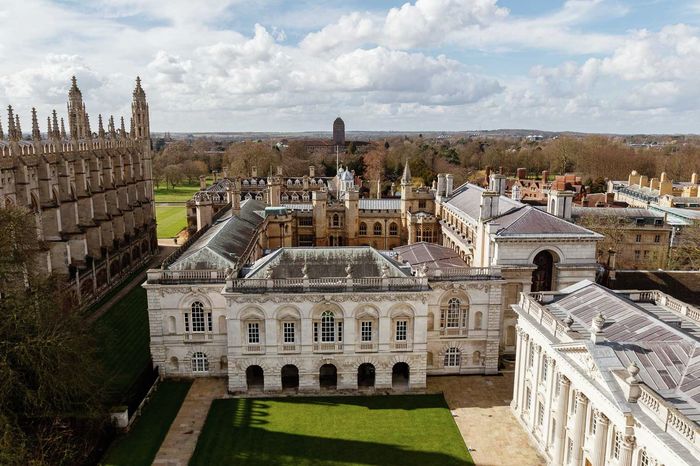MPs call for increased student financial support in England
A report produced by MPs has called for the student Covid disruption fund to increase to £700m

A cross-party group of MPs and peers has urged the Government to more than double student Covid disruption funding in England, from the existing student premium funding of £256m to £700m.
The funding would support students experiencing hardship due to lost income from term-time jobs in the retail and hospitality sectors, and will provide full compensation for rent in respect of unused accommodation due to lockdown measures, as well as those facing other financial difficulties.
This comes after a report was produced following an inquiry responding to calls for compensation.
The inquiry was led by Cambridge Labour MP and Universities Student All-Party Group Chair Daniel Zeichner MP, and Chair of the Student All-Party Group, Labour MP Paul Blomfield MP.
As well as compensating for unusable accommodation and financial hardship, MPs and peers have called for a ‘Covid Student Learning Remediation Fund’, according to a statement given to Varsity from Mr Zeichner’s Office, to allow lost learning to be addressed through the provision of educational opportunities not available through the pandemic.
The report states: “We believe that the priority is to provide students with the financial assistance that they need now … We feel that this approach is fairer and more effective than any general reduction in tuition fees. We believe that an additional sum more than doubling existing student premium funding, of £256m, would be required. Applying the Welsh approach [the Welsh government recently pledged an additional £40m to supporting students facing financial hardship] would suggest a figure around £700m for England.”
The inquiry heard from the National Union of Students (NUS), 47 students’ unions including Cambridge University Students Union and Anglia Ruskin University (ARU) Student Union, 294 individual students from across the UK, as well as private sector landlords and accommodation providers.
Zeichner, also Chair of the Universities All-Party Group, told Varsity that the government needs to “be bold” to protect students both academically and financially.
He said in the press release: “We have a group of students who have been so badly affected by the pandemic: with exams cancelled; the chaos of A-level results day by algorithm; remote learning; being sent back home; and isolation. We need to help students right now and into the future.”
Since the beginning of the pandemic, the government has increased student premium funds, which provide financial support for students facing hardship, by £20m. However, in May 2020, this fund was cut by £16m, meaning the overall increase amounts to £4m.
Elsewhere in the UK, Wales and Scotland have respectively set aside £80m and £67m for student hardship, after Scotland announced last Tuesday (26/01) that it would provide an extra £30m in hardship funding, with £20m going to students and £10m going to universities for income lost through rent rebates. Meanwhile Northern Ireland nearly doubled its student support package to £5.6m in June of last year.
69% of students who responded to an NUS survey carried out in November reported that they were concerned about their ability to pay their rent, and nearly a quarter of students (22%) reported that they were unable to pay their rent in the previous 4 months.
Compensation from universities towards rent has varied, with some institutions offering percentage discounts or fixed payments, and others, including Cambridge, Manchester, and Exeter, providing 100% refunds.
Students have expressed frustration since the beginning of the pandemic, with calls being made to reduce tuition fees due to a reduced quality of learning. Several rent strikes have also been launched nationally, with demands including extra mental health support for isolating students and refunds on unused rooms. It is estimated that 25,000 students, or 5% of those living in halls, have withheld or plan to withhold rent payments.
A rent strike was launched in Cambridge University in November last year, with the aim of reducing rents, allowing students to study remotely, and preventing job losses for college and university staff. However, it was announced in January that the strike will be postponed until Easter Term due to the announcement of the remote Lent Term, and that strikes will only go ahead at the colleges where it is decided that enough strikers have signed up.
 News / Candidates clash over Chancellorship25 April 2025
News / Candidates clash over Chancellorship25 April 2025 Interviews / Dr Ally Louks on going viral for all the wrong reasons25 April 2025
Interviews / Dr Ally Louks on going viral for all the wrong reasons25 April 2025 Music / The pipes are calling: the life of a Cambridge Organ Scholar25 April 2025
Music / The pipes are calling: the life of a Cambridge Organ Scholar25 April 2025 News / Cambridge professor paid over $1 million for FBI intel since 199125 April 2025
News / Cambridge professor paid over $1 million for FBI intel since 199125 April 2025 Arts / Plays and playing truant: Stephen Fry’s Cambridge25 April 2025
Arts / Plays and playing truant: Stephen Fry’s Cambridge25 April 2025







